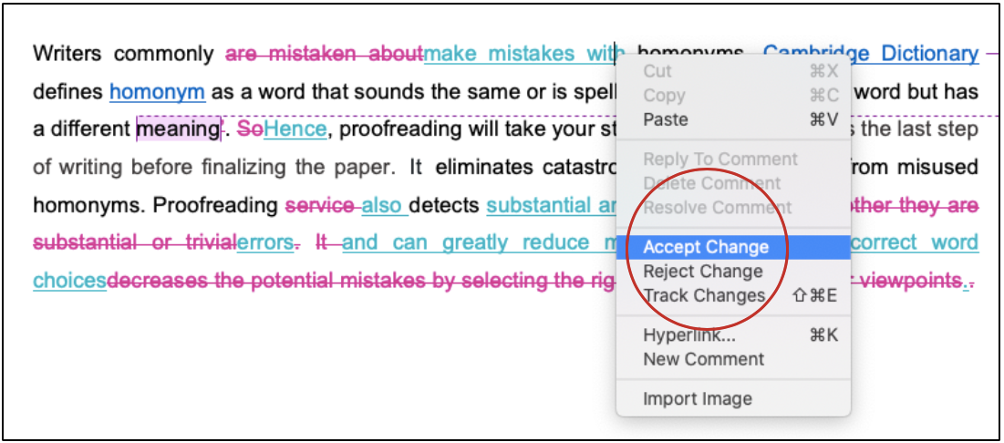We may define a study variable as an attribute of an object of study. Suppose you wish to establish a sound experimental design. In that case, selecting variables to measure is exceedingly crucial.

We may define a study variable as an attribute of an object of a study. Suppose you wish to establish a sound experimental design. In that case, selecting variables to measure is exceedingly crucial. Imagine you want to test the yield of a specific wheat breed. The researcher must define the study variables affecting the yield, such as the amount of fertilizer, the average weather temperature, the amount of rainfall, and the tillage regimen. You must know the types of variables you handle beforehand to select the appropriate statistical tests and interpret your research results. Inquiring about two issues can help you identify two variables. These include the variable's data type and the part of the experiment the variable represents.
Quantitative data are about amounts, while categorical data are about groups. As the name suggests, a variable possessing quantitative data is quantitative. In contrast, a variable with categorical data is categorical. When a variable is discrete, it includes counts of individual items or values. The number of patients in a hospital on a given day and the number of books at a specific library are discrete variables. Discrete variables must be integers. They cannot have decimal numbers.
Ratio variables or continuous variables involve measurements of continuous or infinite values. Temperature, volume, distance, or age are examples.
When you consider categorical variables, you must remember that some kinds of grouping should be present. They may include numbers, but the numbers represent categories instead of actual amounts of things. Categorical variablescomprise binary, nominal, and ordinal variables. Binary variablesinvolve yes or no outcomes. Tossing a coin or winning or losing in a soccer game includes binary or dichotomous variables. Nominal variables mean that they have groups with no meaningful rank or order between them. Colors, brands, gender, and microorganism species could be examples. Nonetheless, the ordinal variable may include a type of order, even if it may be a loose one. The position of basketball players in a team and rating scale responses in a survey such as Beck's depression scale are some examples.
We usually design experiments to explore the effect of one or more variables on another variable, such as the effect of varied fiber concentration on yogurt texture. This circumstance suggests that we manipulate the independent variable (y variable) by changing the levels of the independent variable (x variable). Therefore, the cause-and-effect relationship is evident. The researcher would also have variables held constant throughout the experiment. Independent variables (manipulated) are the ones the researcher controls to see the effect on dependent variables. In the above example, the researcher manipulates the fiber amount to explore the changes in yogurt texture. Suppose that the researcher keeps the room temperature constant during the study. Hence, room temperature becomes the control variable.
The "dependent" and "independent" terms are not meaningful in correlational research. The reason for that lies in the fact that the researcher does not try to build a cause-and-effect relationship, in other words, causation. Nevertheless, one variable may precede the other as the fertilizer application must be before any irrigation treatment in agricultural farming. Should it be the case, you may call the preceding variable the predictor variable.
Once you have chosen your study variables, you are ready to select the proper statistical analysis. In interpreting your results, some other variables are also relevant. Confounding variables are critical as they may block you from seeing the actual effect of your treatment. It would be best to control your confounding variables by holding them constant. Imagine your research in a greenhouse. The temperature inside the greenhouse may prevent you from seeing the reel effect of fertilizer type on fruit yield. Thus, keeping the inside temperature constant is beyond critical. Latent variables can also affect your results as they cannot be determined directly. Finally, you may form composite variables by combining the measured variables in your experiment.
Best Edit & Proof expert editors and proofreaders focus on offering papers with proper tone, content, and style of academic writing, and also provide an upscale editing and proofreading service for you. If you consider our pieces of advice, you will witness a notable increase in the chance for your research manuscript to be accepted by the publishers. We work together as an academic writing style guide by bestowing subject-area editing and proofreading around several categorized writing styles. With the group of our expert editors, you will always find us all set to help you identify the tone and style that your manuscript needs to get a nod from the publishers.

You can also avail of our assistance if you are looking for editors who can format your manuscript, or just check on the particular styles for the formatting task as per the guidelines provided to you, e.g., APA, MLA, or Chicago/Turabian styles. Best Edit & Proof editors and proofreaders provide all sorts of academic writing help, including editing and proofreading services, using our user-friendly website, and a streamlined ordering process.
Visit our order page if you want our subject-area editors or language experts to work on your manuscript to improve its tone and style and give it a perfect academic tone and style through proper editing and proofreading. The process of submitting a paper is very easy and quick. Click here to find out how it works.
Our pricing is based on the type of service you avail of here, be it editing or proofreading. We charge on the basis of the word count of your manuscript that you submit for editing and proofreading and the turnaround time it takes to get it done. If you want to get an instant price quote for your project, copy and paste your document or enter your word count into our pricing calculator.
Contact us to get support with academic editing and proofreading. We have a 24/7 active live chat mode to offer you direct support along with qualified editors to refine and furbish your manuscript.
Follow us on Twitter, LinkedIn, Facebook, Instagram, and Medium.
For more posts, click here.
This article explains how to specify study variables in research papers. To give you an opportunity to practice proofreading, we have left a few spelling, punctuation, or grammatical errors in the text. See if you can spot them! If you spot the errors correctly, you will be entitled to a 10% discount.
How to Determine Variability in a Dataset
14.10.2023
How to Determine Central Tendency
19.02.2023
Population vs Sample | Sampling Methods for a Dissertation
14.01.2023
How to Ensure the Quality of Academic Writing in a Thesis and Dissertation?
04.12.2022
How to Avoid Anthropomorphism in Your Dissertation?
04.11.2022
How to Write a Research Methodology Section for a Dissertation and Thesis
07.08.2022
How to Write a Theoretical Framework for a Dissertation and Thesis?
05.08.2022
How to Write Literature Review for a Dissertation and Thesis
02.08.2022
How to Write a Dissertation and Thesis Introduction
31.07.2022
How to Write an Abstract for A Dissertation or a Thesis
28.07.2022

Academic writing should be free of all errors and grammatical mistakes to ensure accuracy and professionalism. However, now and then, you come across an error while correcting your work that makes it all extremely difficult — dangling modifiers. What exactly are these, and how can you fix dangling modifiers so that your piece of academic work is perfect in all sense? Don’t worry, as we have the perfect guide to help you through it. In this article, we will cover how you can masterfully eliminate them.
Continue Reading
It is not uncommon for individuals, academic and nonacademic to use “thesis” and “research paper” interchangeably. However, while the thesis vs. research paper puzzle might seem amusing to some, for graduate, postgraduate and doctoral students, knowing the differences between the two is crucial. Not only does a clear demarcation of the two terms help you acquire a precise approach toward writing each of them, but it also helps you keep in mind the subtle nuances that go into creating the two documents. This brief guide discusses the main difference between a thesis and a research paper.
Continue Reading
While researching a group of people, collecting data from every person in that group is virtually impossible. To counter this issue, you choose a sample. What is the difference between population and sample? What sampling methods should you use in your dissertation?
Continue Reading